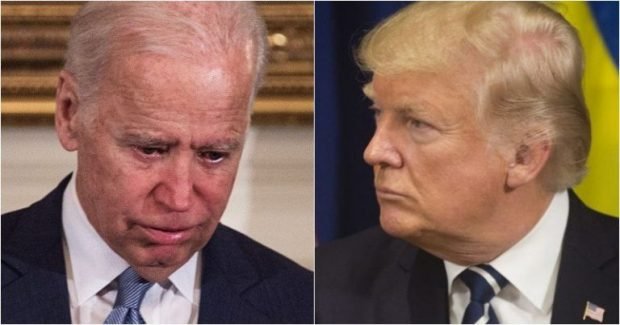On Property Rights: Signaling Matters Too
The extent to which property rights are upheld by court enforcement is often used as an indicator for economic prosperity. This makes excellent sense, as it is hard to imagine a large division of labor wherein violations of property rights are rampant. However, this fallacious thinking ignores other methods of securing property rights. Said rights are not maintained by courts alone; as economic theory and history tell us, there is another important factor in securing safe transactions: signaling.
Signaling is when one party performs an action that is costly if they were to renege on the terms of an exchange. Often-employed store-branded signs (think of the giant McDonald’s “M”) are an excellent example of signaling; signs are often costly, and in having one, a merchant displays that they are trustworthy. If they were not trustworthy, then investing in an expensive sign would prove useless. A bank constructing a beautiful building and a food company buying ads are further possible examples of signaling. Signaling allows for the sorting of transactors without employing courts or any form of law enforcement.
While signaling sometimes ensures safer transactions, appealing to courts for remuneration after theft (or worse) could be less costly than signaling. This much is apparent; but, in a free market we would expect actors to signal and consult courts. Furthermore, we would expect individuals to invest in each until their rates of return equalize. However, we do not live in a free market, and there is one major hindrance to this analysis: the government runs the courts.
In most of the United States, affording private schooling for one’s children is more complicated than merely paying the tuition; one is also foregoing the taxes paid to public schools. If one pays $5,000 in taxes towards public schooling, then in paying $6,000 for private schooling, one is actually paying $11,000. Thus, marginal buyers of private schooling will not purchase it. This state of affairs is not utility-maximizing. I’m sure the standard reader doesn’t need a reminder of this popular argument for school-choice, but it perfectly mirrors the state enforcement of private property. Courts have a cost, and more costly is the state’s threat of force (which is backed by police, military, and prisons). If one doesn’t use the aforementioned state-provided services, one is losing money. This would be fine if the state adequately predicted and matched every consumer’s willingness to pay for legal enforcement, but this is extremely unlikely. If the government were providing too little of court services, it would stand to reason that we’d see more instances of private dispute resolution, as I discuss later. Nonetheless, it is difficult to say for sure whether the government over-provides court services, but that does not make this analysis uninteresting or redundant. For the sake of the argument, I continue under the premise that the state over-provides court services.
With court costs being not only higher but extorted from consumers, the marginal transactor will rely more on court enforcement than on signaling, akin to the marginal schoolers staying in public schools. For an individual to signal, they are not only paying (x) amount of money, but also foregoing the cost of court enforcement that they already paid for. It is practically impossible to calculate the extent to which signaling would diminish as a result; however, there are many trends that may be explained in this way. For example, one often hears complaints about business buildings and churches becoming uglier and drab; or, of grocery items becoming less ornate and lame. Both could possibly be explained by the aforementioned overuse of courts; with individuals artificially incentivized to sue ex post, rather than sort out bad actors ex ante. I think these are two easy examples, though the implications of artificially overused courts are many.
James Grant notes in Money of the Mind that banks in the beginning of the 19th century would build elaborate edifices with sometimes never-before-seen structural marvels (like glass walls) in an effort to signal trustworthiness; now, it is difficult to find a bank building not wholly designed for practicality. In major cities such as Chicago and New York, there are government landmark boards (sometimes “commissions”) that arose mostly in the 60’s and 70’s and exist specifically to designate buildings as historical landmarks, so as to legally disallow individuals from altering landmark properties. Penn Central Transportation Co. v. New York City is a 1978 case surrounding Penn Station, the most trafficked and oldest train station in NYC; interestingly, the case began when owners attempted to demolish unnecessary (but supposedly beautiful) parts of the building to be replaced with dismal office space. Upon visiting New York City now, the only intentionally beautiful buildings that remain are almost entirely in existence because of their mandated landmark status.
One could speculate endlessly about the implications of overused courts in everyday life. An important conclusion though (regardless of whether courts are overused) is that measuring private property rights through court enforcement of property is not necessarily indicative of prosperity. For example, if the government collected enough taxes to make courts viable for the pettiest of disputes (such as cutting in line, or a friend accidentally knocking me over), this would surely be a wasteful use of tax money as private dispute resolution (or no resolution at all) is preferable; the market would not be better off.
Chris Coyne has developed arguments surrounding the role of trust in the prosperity of markets; empirically, he and Claudia Williamson have found that “The more open a country is to trade, the more likely it is to possess culture conducive to economic interaction and entrepreneurship.” Coyne also demonstrates in other work how countries like Somalia are economically more prosperous with private solutions to order than with government-provided ones. For courts in particular, Somalia has clan-based mediation that fills the void of government courts. Pete Leeson also has extensive literature on private dispute resolutions in medieval Europe, Africa, and amongst criminal populations. While many policy conclusions can be made from this, I simply urge the reader to note that signaling is a method of building trust in markets; the aforementioned literature shows how trust and signaling can be wealth-maximizing relative to government-provided remediation. In other words, I am not arguing anything completely new or surprising.
Once again, I do not intend to prove whether courts are overused, but the burden of doing so is equally distributed to those of the opposite contention, and thus assuming courts are always prosperity-building is (at the very least) an equally untenable position. I simply maintain that one cannot confidently measure court enforcement of property rights as an indicator of prosperity or wealth; it may, in fact, be a hindrance to it. In Coyne’s example of Somalia, the lack of government courts would give Somalia a terrible ranking in “property rights” or economic prosperity; though we know from Coyne that this should not be the case. I happen to know that Uganda and Egypt also have large populations relying on private dispute resolutions; yet, they are consistently ranked low on property rights indexes. This should not be the case.
Content syndicated from Fee.org (FEE) under Creative Commons license.
Agree/Disagree with the author(s)? Let them know in the comments below and be heard by 10’s of thousands of CDN readers each day!





The courts are absolutely hostile to property rights, particularly when individuals challenge the Scientific Educational Research Environmental Regulatory Industrial Complex (SERERIC). I think this article misses what is REALLY going on with our loss of property rights and Constitutional “takings”.
We define property rights differently. My article discusses the methods individuals will use to protect their property efficiently. I am not talking about abstract natural rights.